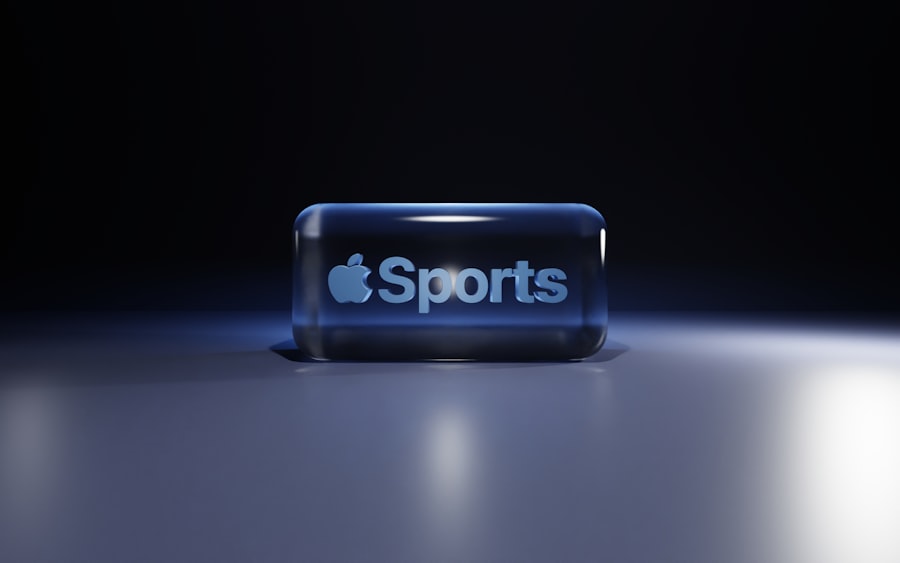A sports public relations (PR) agency serves as a vital intermediary between athletes, teams, and the media, playing a crucial role in shaping public perception and managing communications. These agencies specialize in promoting the interests of their clients, whether they are individual athletes, sports teams, or organizations. Their primary objective is to enhance visibility and reputation through strategic communication efforts.
This involves crafting press releases, organizing media events, and managing social media accounts, all tailored to resonate with the target audience. The agency’s expertise in navigating the complex landscape of sports media allows them to effectively position their clients in a competitive environment. Moreover, sports PR agencies are adept at understanding the nuances of the sports industry, including the unique challenges and opportunities that arise.
They are equipped to handle various aspects of public relations, from crisis management to brand development. For instance, when an athlete faces negative publicity due to a scandal or poor performance, a sports PR agency can implement damage control strategies to mitigate the fallout. This might involve issuing statements, arranging interviews to clarify the situation, or even orchestrating a public apology.
By managing these communications effectively, the agency helps protect the athlete’s brand and maintain their marketability.
Key Takeaways
- Sports PR agencies play a crucial role in managing and enhancing an athlete or team’s public image.
- Strong media relationships are essential for maximizing brand exposure and visibility.
- Creating a compelling brand narrative helps connect with audiences and build loyalty.
- Effective use of social media and digital marketing amplifies reach and engagement.
- Crisis management is vital to protect reputation and maintain long-term brand equity.
Leveraging Media Relationships for Brand Exposure
One of the most significant advantages of partnering with a sports PR agency is their established relationships with media outlets. These connections are invaluable for securing coverage that can elevate an athlete’s or team’s profile. A well-connected PR agency knows which journalists cover specific sports and can pitch stories that align with their interests.
This targeted approach increases the likelihood of favorable media coverage, which can lead to enhanced brand exposure. For example, if a rising star in basketball achieves a notable milestone, a sports PR agency can quickly mobilize to ensure that this achievement is highlighted in major sports publications and news outlets. Additionally, these agencies often have access to exclusive media events and opportunities that can further amplify their clients’ visibility.
By leveraging these relationships, they can arrange interviews, feature articles, and appearances on popular sports talk shows. This not only helps in building an athlete’s personal brand but also contributes to the overall narrative of the sport itself. For instance, when a football player is featured in a high-profile magazine or invited to participate in a televised interview, it not only showcases their individual accomplishments but also enhances the league’s image as a whole.
The ripple effect of such media exposure can lead to increased fan engagement and loyalty.
Crafting a Compelling Brand Narrative

At the heart of effective sports PR lies the ability to craft a compelling brand narrative that resonates with fans and stakeholders alike. A strong narrative goes beyond mere statistics and achievements; it encompasses the athlete’s journey, values, and personality. Sports PR agencies excel at identifying these unique elements and weaving them into a cohesive story that captivates audiences.
For example, an athlete who has overcome significant personal challenges can have their story framed in a way that highlights resilience and determination, making them relatable to fans who may face similar struggles. Furthermore, a well-crafted narrative can serve as a powerful tool for differentiation in a crowded marketplace. In an era where numerous athletes compete for attention, having a distinct story can set one apart from the rest.
A sports PR agency can help develop this narrative through various channels, including press releases, social media content, and promotional materials. By consistently communicating this story across platforms, they ensure that it becomes ingrained in the public consciousness. This not only enhances brand loyalty but also fosters emotional connections between athletes and their fans.
Utilizing Social Media and Digital Marketing Strategies
| Metric | Description | Typical Range | Importance |
|---|---|---|---|
| Engagement Rate | Percentage of audience interacting with content (likes, comments, shares) | 1% – 10% | High |
| Click-Through Rate (CTR) | Percentage of users clicking on a link or ad | 0.5% – 3% | High |
| Conversion Rate | Percentage of visitors completing a desired action (purchase, signup) | 2% – 10% | High |
| Follower Growth Rate | Rate at which social media followers increase over time | 5% – 15% monthly | Medium |
| Impressions | Number of times content is displayed to users | Varies widely | Medium |
| Cost Per Click (CPC) | Average cost paid for each click in paid campaigns | Varies by industry | Medium |
| Return on Investment (ROI) | Revenue generated compared to marketing spend | Positive values preferred | High |
| Bounce Rate | Percentage of visitors leaving after viewing one page | 20% – 70% | Medium |
| Average Session Duration | Average time users spend on website | 1 – 5 minutes | Medium |
In today’s digital age, social media has become an indispensable tool for sports PR agencies. Platforms like Twitter, Instagram, and TikTok allow athletes to engage directly with their fans, bypassing traditional media gatekeepers. A proficient sports PR agency understands how to leverage these platforms effectively to amplify their clients’ messages.
They create tailored content that resonates with specific audiences while maintaining brand consistency across channels. For instance, an athlete might share behind-the-scenes glimpses of their training regimen on Instagram while using Twitter for real-time updates during games. Moreover, digital marketing strategies such as targeted advertising and influencer partnerships can significantly enhance an athlete’s reach.
A sports PR agency can identify key influencers within the sports community who align with their client’s brand values and collaborate on campaigns that promote both parties. This not only broadens the audience base but also adds authenticity to the messaging. For example, if a professional soccer player partners with a popular fitness influencer for a workout challenge on social media, it creates an engaging experience for fans while simultaneously promoting both brands.
Securing Endorsement and Sponsorship Opportunities
Endorsements and sponsorships are critical components of an athlete’s financial success and brand development. Sports PR agencies play a pivotal role in identifying and securing these lucrative opportunities by leveraging their industry connections and market insights. They conduct thorough research to match athletes with brands that align with their values and target demographics.
For instance, a tennis player known for their commitment to sustainability might be paired with an eco-friendly apparel brand for endorsement deals that resonate with environmentally conscious consumers. The negotiation process for endorsements requires finesse and strategic thinking. A skilled sports PR agency will advocate for their client’s best interests while ensuring that the partnership is mutually beneficial for both parties involved.
This includes negotiating terms such as compensation, promotional obligations, and exclusivity agreements. Additionally, they help athletes navigate potential conflicts of interest and ensure that any endorsements align with their overall brand narrative. By securing high-profile sponsorships, athletes can significantly enhance their visibility while also generating substantial revenue streams.
Crisis Management and Reputation Protection

In the fast-paced world of sports, crises can arise unexpectedly, threatening an athlete’s reputation and career trajectory. Sports PR agencies are equipped to handle such situations with poise and expertise. Their crisis management strategies involve swift action to address negative publicity while protecting their client’s image.
This may include crafting timely statements, coordinating press conferences, or even engaging legal counsel if necessary. The goal is to control the narrative before it spirals out of control. For example, if an athlete is involved in a controversial incident off the field, a sports PR agency will work diligently to assess the situation and formulate an appropriate response.
They may advise the athlete on how to communicate effectively with the media while also considering the potential impact on endorsements and sponsorships. By proactively managing crises and maintaining open lines of communication with stakeholders, these agencies help mitigate damage and preserve long-term brand equity.
Building Long-Term Brand Equity
Building long-term brand equity is essential for athletes who aspire to maintain relevance beyond their playing careers. Sports PR agencies focus on creating sustainable brand strategies that extend an athlete’s influence over time. This involves not only promoting current achievements but also positioning them as thought leaders within their respective sports or communities.
For instance, an athlete who actively engages in philanthropic efforts can cultivate a positive public image that resonates with fans on multiple levels. Additionally, long-term brand equity is fostered through consistent engagement with fans and stakeholders across various platforms. A sports PR agency will develop strategies that encourage ongoing interaction, whether through social media campaigns or community outreach initiatives.
By nurturing these relationships over time, athletes can create a loyal fan base that supports them throughout their careers and beyond. This enduring connection is invaluable when transitioning into post-retirement endeavors such as coaching, broadcasting, or entrepreneurship.
Measuring the Impact of PR Efforts
To assess the effectiveness of public relations efforts in the sports industry, it is crucial to implement robust measurement frameworks that evaluate both quantitative and qualitative outcomes. Sports PR agencies utilize various metrics to gauge success, including media coverage volume, sentiment analysis, social media engagement rates, and audience reach. By analyzing these data points, they can determine which strategies are yielding positive results and which areas may require adjustment.
For instance, if an athlete’s social media campaign generates significant engagement but fails to translate into increased merchandise sales or ticket sales for events, it may indicate a need for refinement in messaging or targeting strategies. Additionally, conducting surveys or focus groups can provide valuable insights into fan perceptions and attitudes toward an athlete’s brand. By continuously measuring and analyzing these factors, sports PR agencies can adapt their strategies to maximize impact and ensure that their clients remain at the forefront of public consciousness in an ever-evolving landscape.



